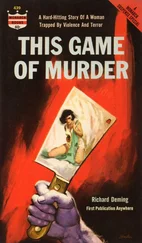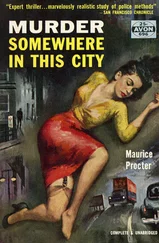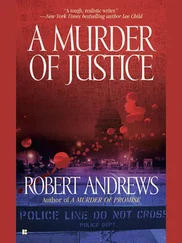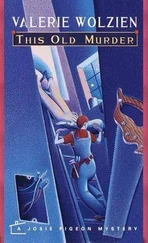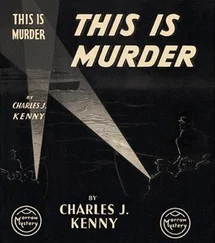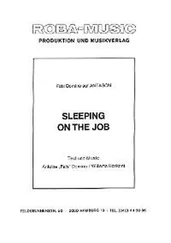“What did you do with the gun?” she asked.
“I wiped it down and brought it with me.”
“What?” Her voice rose to nearly a screech.
“I’ll be right back.”
She stood at the window, looking at him as he hurried toward his bike in its usual spot under the street lamp. He leaned into the enclosure behind the bike, pulled out a grocery bag, and headed back in. He’s absolutely lost it. He left the gun in the bike carriage? Moments later, Lawrence gave her the bag, which contained a solid object wrapped in bathroom tissue, and she put it into her office safe while he watched her.
“I’ll dispose of it later,” she said. “Okay, Lawrence, wash your face and go home to your family. Say nothing. Surely the cops will try to pin it on Henry, and he’ll have an alibi, and they’ll be left with a cold case. You’ll be fine.”
She paused, took a slow breath, and nodded with assurance. “I’m going to follow you to your house to make sure you get there safely.”
When she pulled her Lexus SUV around from the parking lot behind the building, the headlights illuminated Lawrence waiting in the street beside his bicycle. He jumped on and began pedaling, and she thought she could see the muscles flexing in the once-cute ass under his khakis. She kept him in her headlights as he gained speed on the dark highway, cycling fast, as if trying to outrun his thoughts.
In contrast, Rainey wasn’t thinking, for once. Shell-shocked and exhausted, she watched her business partner’s dark head bobbing in front of her as he pumped the pedals. No cars passed in either direction on the dark road, but still she focused on driving, her jaw clenched, intent on maintaining just the right distance.
Rainey followed Lawrence all the way to the right turn that would take him home, the road that swept down the hillside in sharp curves before reaching his narrow driveway. He might have successfully made the turn if she hadn’t sped up beside him and edged him to the sandy shoulder of the road. He might still have made the turn if she hadn’t then braked to clip, just barely, the carriage trailing behind him. But she did both those things, simultaneously turning her headlights off and on, off and on. At speed, unable to see in the intermittent flashes of light, he skidded out of control on the sand and slammed into the concrete retaining wall next to the roadway.
Rainey stopped the car, turned her headlights off, and waited a minute in the car, taking deep breaths. Did it work? Kicking off her elegant heels, she grabbed a flashlight from the glove box and got out of the car. She trained her flashlight on the body crumpled beside the road. His head was twisted at an unnatural angle, and his chest didn’t show even a whisper of movement.
Then she sighed a deep sigh of relief and regret.
“Larry,” she said, shaking her head, “Larry. Damned if you didn’t turn out to be a Larry. For all these years, I thought you were a Lawrence. I’ve put up with your being cute and unavailable. I could handle your being married, and I even like your wife. But killing a client is way out of line. It’s bad for our reputation, so not good for business. Dammit, Larry, you made it a lose-lose! You brought this on yourself.”
She walked back to the car, turning back one time. “And if you were going to screw around,” she shook her head again. “Oh, Larry. Miss Mouse?”
Jill Breslau is a lawyer and psychotherapist who has, indeed, worked as a divorce mediator. The major incidents in this story are unrelated to her actual experience. Some of the less dramatic events are true, though it’s to no one’s advantage to identify them. Jill lives in Maryland with her golden retriever, Mr. Jones. She has four adorable grandchildren who may find it difficult to imagine, when they grow up, that their grandmother could write about people who have wicked thoughts and do terrible things. She has written legal articles; this is her first short story.
Plunging into the cold water of the Chesapeake Bay jolted me awake. Fear and panic overwhelmed me. I gasped for air as the boat sped off into the darkness. The last thing I remembered before hitting the water was a kaleidoscope exploding in my head. Someone on the boat had hit me from behind before dumping me overboard.
My chest heaved as brackish water washed into my lungs. My arms and legs felt like lead. On the verge of passing out, I swam toward a small green light swaying back and forth in the choppy water. I was determined to survive. I had a score to settle.
* * * *
Brief snatches of my ordeal and rescue flitted through my sluggish brain as warm sunlight and the smell of fresh coffee began to revive me. I opened one eye. The digital clock on a bedside table read 9:05. I ached. The pain in my head pulsed. My throat was dry, and my eyelids felt like sandpaper. The room faded in and out of focus. I shut my eyes and counted to ten. When I opened them again, a lanky, weathered man stood over me. I guessed he was around seventy.
I felt woozy but strong enough to sit up. The covers were damp, and I felt a sudden chill as I swung my bare legs over the side of the bed.
“I’m washing your clothes, son, and you could sure use a shower,” the old man said, putting a cup of coffee and a bowl of soup on the bedside table. “I thought you might want something to eat.” He helped me into a faded blue terrycloth bathrobe.
The broth was warm and soothing, and my strength began to return. As I ate, he told me how he’d seen me clinging to a navigation buoy bobbing in the bay. “It must have taken all your will to survive. I thought it best to bring you home with me.”
“Where am I?”
“Piney Point.”
“I can’t thank you enough, mister…” I almost choked on the broth.
“Newhouse, Bill Newhouse, and you’re Shelby Reid. I saw your ID when I spread the things in your wallet out to dry. I’m pleased to meet you, Shelby, and you’re welcome.” He offered me a large, work-roughened hand with long, square-tipped fingers.
Clean clothes were on the bed when I finished my shower. “You had only one sock on when we pulled you out of the bay,” Newhouse said from the other room. “Come on in and we’ll get you fixed up.”
“We?” Tucking in my shirttail, I stopped in the doorway, wondering who else was in the house.
“Mr. Reid, this is my niece, Denise. She’s visiting for the weekend, as she often does. Join us for coffee.” He gestured toward a cushioned chair, identical to one occupied by a woman in her early thirties, about my age. Tall and athletic with a generous, friendly smile, she stood to greet me.
“Denise and I like to take my boat out early in the morning to watch the birds and other inhabitants of the bay. It’s really spectacular, and we never know what we’ll find out there,” the old man said.
I took that as my cue to explain how I came to be in their debt.
I made up a story about fishing with some guys I met in a bar. “The three of us were on this fancy, new cabin cruiser, drinking and swapping fish tales. Then the owner said something about his buddy’s ex-wife, and they started arguing,” I said. “When the owner accused the other guy of sleeping with his wife, things got nasty.
“They were pretty drunk,” I continued, “and things got out of hand. They started fighting like a couple of kids, and I tried to get in between them. That’s when one of them punched me, and I hit my head and fell into the water. Don’t think either of them noticed, they were going at it so hard.”
My rescuers looked at one another, then back at me.
“Maybe I should call the cops and tell them what happened,” I said, setting my cup down.
Читать дальше

